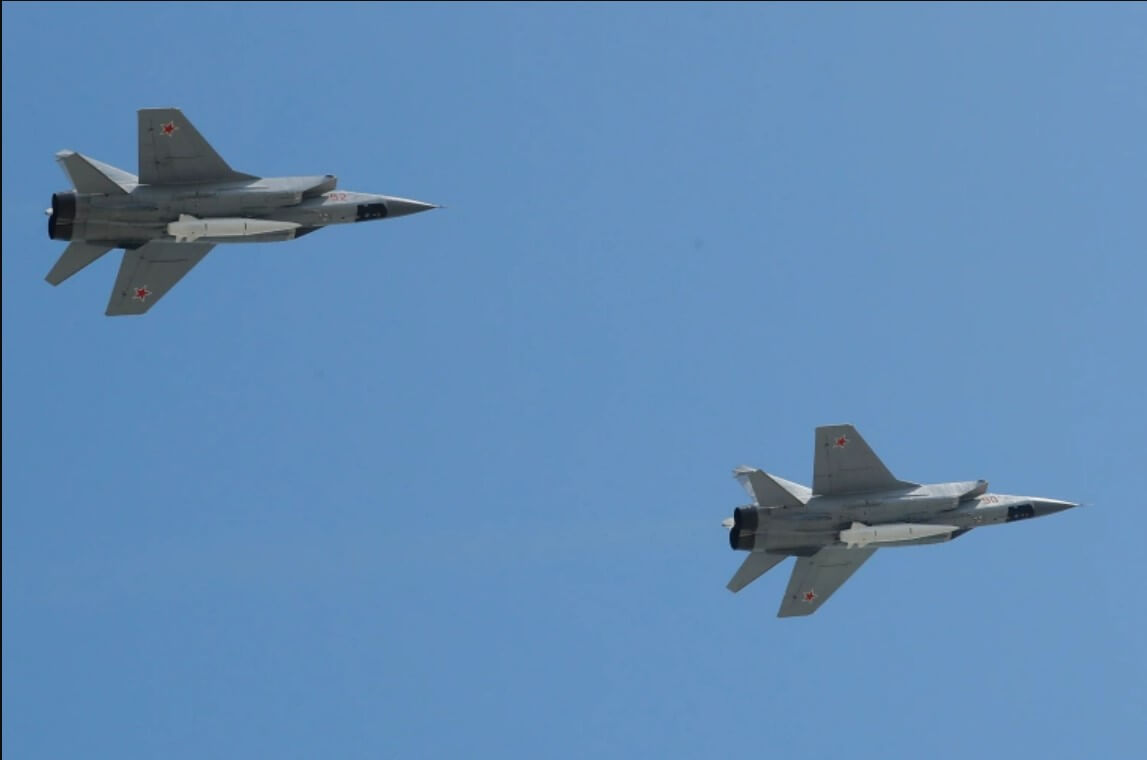The Finnish Defence Ministry announced on Thursday that two Russian Mig-31 fighter jets had allegedly violated its airspace near the city of Porvoo on the Gulf of Finland that morning.
Defence Ministry communications chief Kristian Vakkuri told Reuters that the violation happened at 6:40 AM (GMT) for two minutes and the jets were flying westwards. “The depth of the suspected violation into Finnish airspace was one kilometre,” he revealed, without saying whether the jets were escorted out.
In a statement, the Defence Ministry noted that its Air Force conducted an “operational identification flight” and the Border Guard has begun a preliminary investigation into the incident. Furthermore, the Ministry for Foreign Affairs has requested an explanation from the Russian Embassy in Helsinki regarding the incident.
The Foreign Ministry of Finland has contacted the Embassy of Russia in Helsinki and requested for an explanation regarding the suspected violation of airspace.
— MFA Finland 🇫🇮 (@Ulkoministerio) August 18, 2022
It is not an isolated incident because, in May, a Russian Mi-17 helicopter violated the Finnish airspace twice on the same day during a routine border patrol. However, the Border Guard concluded that it was not a “serious” violation, as the helicopter flew about 700 metres over the Finnish side near Kitee in North Karelia, and then about 500 metres near Rautjärvi in South Karelia. “The deviations were of short duration, and the helicopter returned to Russian airspace on its own initiative,” the Border Guard said in a statement.
This comes against the backdrop of the Finnish Ministry for Foreign Affairs’ announcement on Tuesday that it is cutting visa application appointments in Russia by half from September 1, limiting them from 1,000 to 500 each day. It also revealed that 20% of the applications would be reserved for tourism while the rest would be for other reasons, including family ties, work, and study. To this end, Minister for Foreign Affairs Pekka Haavisto revealed that Russian tourist visas would be “significantly reduced” to 10% of the current average, meaning 100 applications per day.
In this respect, Finnish Prime Minister (PM) Sanna Marin asserted on Monday, “It’s not right that Russian citizens can enter Europe, the Schengen area, be tourists... while Russia is killing people in Ukraine. It’s wrong.” Haavisto also disclosed that Helsinki is considering a special humanitarian visa category for journalists and Non-Governmental Organisations (NGOs).
Hallitus keskusteli Säätytalossa mahdollisuuksista rajoittaa venäläisturisteille myönnettäviä viisumeja.
— Valtioneuvosto | Statsrådet (@valtioneuvosto) August 16, 2022
Hallitus toivoo EU-tason ratkaisuja ja valmistautuu samalla tekemään kansallisesti hallinnollisia rajoituksia turistiviisumien myöntämiseen.
Ministerin @Haavisto kommentit⤵️ pic.twitter.com/XrCeIdcaOs
In response, the Russian Foreign Ministry’s deputy spokesman, Ivan Nechayev, called it “another Russophobic crusade in some European Union (EU) countries, initiated by the Baltic States,” and promised a “proper reaction.” He also remarked that Finland’s decision illustrates “the politically motivated discrimination against Russians on ethnic grounds” and confirms their “disregard” for international commitments.
Estonia, Latvia, Lithuania, and Denmark have already announced a complete visa ban against Russia and called for an EU-wide embargo, though this faces opposition from Germany. While the bloc has vetoed the proposal, Czech Republic, which holds the current rotating EU presidency, has promised to hold further discussions on the issue.
This follows provocative measures against countries pushing for visa bans. Estonia had a cyberattack and 3 MiGs were deployed in Kaliningrad near Poland and Lithuania
— Samuel Ramani (@SamRamani2) August 18, 2022
This is a trigger, alongside Russia's plan to destabilize the Gulf of Finland before Finland's NATO accession pic.twitter.com/HgIYEAYpgK
Following the Russian invasion of Ukraine, Finland, which shares the longest land border (1,300 kilometres) with Russia, decided to quit its militarily neutral position and applied for North Atlantic Treaty Organization’s (NATO) membership, along with Sweden. In retaliation, Moscow repeatedly threatened Helsinki with “serious political-military consequences.” In fact, Russia also moved its military equipment, including coastal defence systems, towards its border with Finland in April.
In May, Russian President Vladimir Putin warned his Finnish counterpart Sauli Niinistö that abandoning the “traditional policy of military neutrality would be a mistake since there is no threat to Finland’s security.” Russia also cut Finland’s electricity supply, citing payment issues.
After Turkey agreed to “pave the way” for Sweden and Finland to join the military alliance after signing a trilateral memorandum that addressed Ankara’s “legitimate security concerns” at the NATO Summit in Madrid in June, Putin reiterated that tensions with Finland would be “inevitable if there is a threat to us.”
The Finnish Security and Intelligence Service had cautioned in May that “Russia has the will” to influence Finland’s NATO membership process, and “various attempts to do so are to be expected.” Helsinki needs the official approval of all 30 NATO members, which could take a year. Currently, the Czech Republic, Greece, Hungary, Portugal, Slovakia, Spain, and Turkey are yet to ratify Finland and Sweden’s accession protocols to join NATO.

